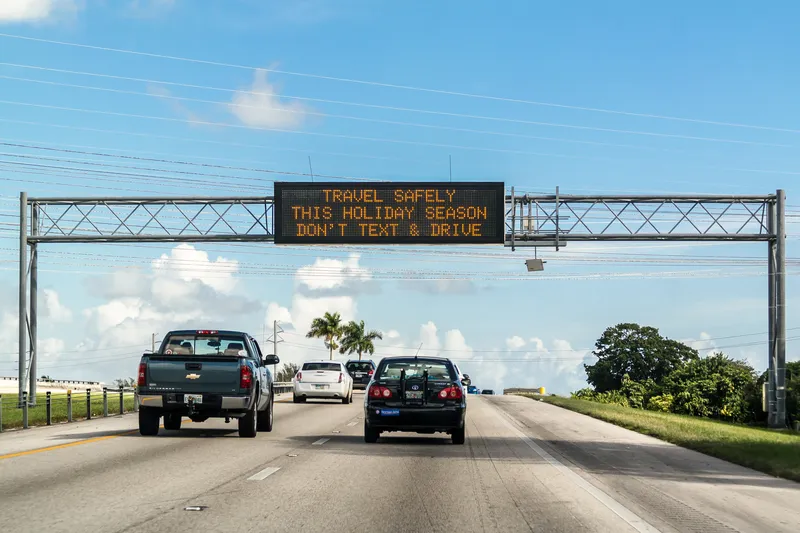Motorists in Abu Dhabi will now be able to get alerts about accidents and traffic jams from numerous variable message signs (VMS) currently being installed on the capital’s roads. At least 86 (VMS) will notify motorists of road blocks, construction and weather updates, giving them the opportunity to change their route if necessary. More than half will be equipped with traffic monitoring stations to record data from their areas and send the information to a central data centre. CCTV will also transmit road
April 4, 2013
Read time: 2 mins
Motorists in Abu Dhabi will now be able to get alerts about accidents and traffic jams from numerous variable message signs (VMS) currently being installed on the capital’s roads.
At least 86 (VMS) will notify motorists of road blocks, construction and weather updates, giving them the opportunity to change their route if necessary. More than half will be equipped with traffic monitoring stations to record data from their areas and send the information to a central data centre. CCTV will also transmit road information to the data centre, enabling operators to update the VMS in real time. The remaining VMS will display general messages on road closures; others will carry information on road closures and speed limit changes.
“The electronic signs will allow us to communicate with motorists in real time to ensure they are kept up-to-date with necessary traffic information to plan their route accordingly and be aware of any upcoming traffic issues.” said Faisal Al Suwaidi, director general of main roads in the Department of Transport (DoT).
At least 86 (VMS) will notify motorists of road blocks, construction and weather updates, giving them the opportunity to change their route if necessary. More than half will be equipped with traffic monitoring stations to record data from their areas and send the information to a central data centre. CCTV will also transmit road information to the data centre, enabling operators to update the VMS in real time. The remaining VMS will display general messages on road closures; others will carry information on road closures and speed limit changes.
“The electronic signs will allow us to communicate with motorists in real time to ensure they are kept up-to-date with necessary traffic information to plan their route accordingly and be aware of any upcoming traffic issues.” said Faisal Al Suwaidi, director general of main roads in the Department of Transport (DoT).










